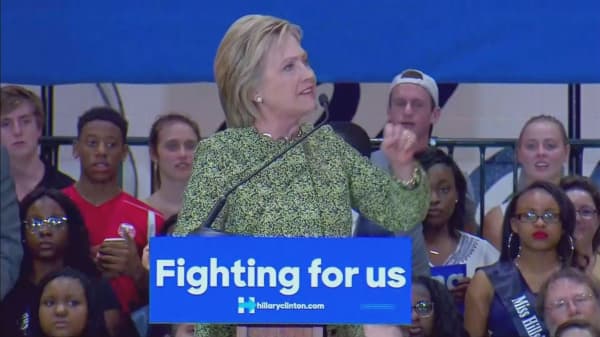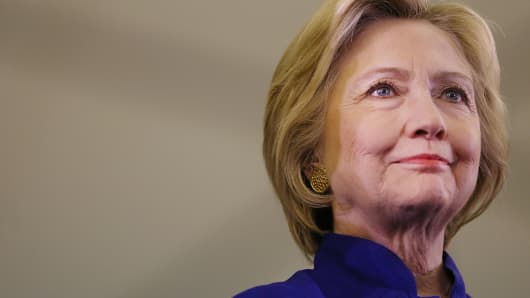California—the home of the next big Democratic primary--may be the Golden State, but many Democratic insiders seem worried their chances against Donald Trump are already tarnished. While the national horse race has indeed temporarily narrowed, it seems unlikely that Bernie Sanders is the cause, or that Democratic primary is causing Hillary Clinton lasting damage.
Polls show Democrats are more optimistic than one might expect during a supposed contentious primary. The latest CBS/New York Times poll shows a full 80 percent of Democrats nationally feel "hopeful" about the future of their party, compared to 55 percent of Republicans who say the same about their own party. And while Democrats are divided on whether the party is divided (48 percent "divided" versus 50 percent "united"), Republicans are nearly unanimous on their intra-party rancor (84 percent "divided"). In this case agreement is no prize.








